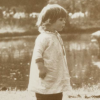-
Content count
5,254 -
Joined
-
Last visited
-
Days Won
43
Everything posted by soaring crane
- Prev
- 137
- 138
- 139
- 140
- 141
- 142
- 143
- 142
- 141
- 140
- 139
- 138
- 137
- 136
- 135
- 134
- 133
- 132
- 131
- 130
- 129
- 128
- 127
- 126
- 125
- 124
- 123
- 122
- 121
- 120
- 119
- 118
- 117
- 116
- 115
- 114
- 113
- 112
- 111
- 110
- 109
- 108
- 107
- 106
- 105
- 104
- 103
- 102
- 101
- 100
- 99
- 98
- 97
- 96
- 95
- 94
- 93
- 92
- 91
- 90
- 89
- 88
- 87
- 86
- 85
- 84
- 83
- 82
- 81
- 80
- 79
- 78
- 77
- 76
- 75
- 74
- 73
- 72
- 71
- 70
- 69
- 68
- 67
- 66
- 65
- 64
- 63
- 62
- 61
- 60
- 59
- 58
- 57
- 56
- 55
- 54
- 53
- 52
- 51
- 50
- 49
- 48
- 47
- 46
- 45
- 44
- 43
- 42
- 41
- 40
- 39
- 38
- 37
- 36
- 35
- 34
- 33
- 32
- 31
- 30
- 29
- 28
- 27
- 26
- 25
- 24
- 23
- 22
- 21
- 20
- 19
- 18
- 17
- 16
- 15
- 14
- 13
- 12
- 11
- 10
- 9
- 8
- 7
- 6
- 5
- 4
- 3
- 2
- 1
- 0
- Next
- Prev
- 137
- 138
- 139
- 140
- 141
- 142
- 143
- 142
- 141
- 140
- 139
- 138
- 137
- 136
- 135
- 134
- 133
- 132
- 131
- 130
- 129
- 128
- 127
- 126
- 125
- 124
- 123
- 122
- 121
- 120
- 119
- 118
- 117
- 116
- 115
- 114
- 113
- 112
- 111
- 110
- 109
- 108
- 107
- 106
- 105
- 104
- 103
- 102
- 101
- 100
- 99
- 98
- 97
- 96
- 95
- 94
- 93
- 92
- 91
- 90
- 89
- 88
- 87
- 86
- 85
- 84
- 83
- 82
- 81
- 80
- 79
- 78
- 77
- 76
- 75
- 74
- 73
- 72
- 71
- 70
- 69
- 68
- 67
- 66
- 65
- 64
- 63
- 62
- 61
- 60
- 59
- 58
- 57
- 56
- 55
- 54
- 53
- 52
- 51
- 50
- 49
- 48
- 47
- 46
- 45
- 44
- 43
- 42
- 41
- 40
- 39
- 38
- 37
- 36
- 35
- 34
- 33
- 32
- 31
- 30
- 29
- 28
- 27
- 26
- 25
- 24
- 23
- 22
- 21
- 20
- 19
- 18
- 17
- 16
- 15
- 14
- 13
- 12
- 11
- 10
- 9
- 8
- 7
- 6
- 5
- 4
- 3
- 2
- 1
- 0
- Next

